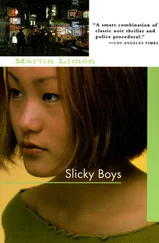Various - Our Boys
Здесь есть возможность читать онлайн «Various - Our Boys» — ознакомительный отрывок электронной книги совершенно бесплатно, а после прочтения отрывка купить полную версию. В некоторых случаях можно слушать аудио, скачать через торрент в формате fb2 и присутствует краткое содержание. Жанр: Детские стихи, foreign_antique, foreign_prose, foreign_children, на английском языке. Описание произведения, (предисловие) а так же отзывы посетителей доступны на портале библиотеки ЛибКат.
- Название:Our Boys
- Автор:
- Жанр:
- Год:неизвестен
- ISBN:нет данных
- Рейтинг книги:4 / 5. Голосов: 1
-
Избранное:Добавить в избранное
- Отзывы:
-
Ваша оценка:
- 80
- 1
- 2
- 3
- 4
- 5
Our Boys: краткое содержание, описание и аннотация
Предлагаем к чтению аннотацию, описание, краткое содержание или предисловие (зависит от того, что написал сам автор книги «Our Boys»). Если вы не нашли необходимую информацию о книге — напишите в комментариях, мы постараемся отыскать её.
Our Boys — читать онлайн ознакомительный отрывок
Ниже представлен текст книги, разбитый по страницам. Система сохранения места последней прочитанной страницы, позволяет с удобством читать онлайн бесплатно книгу «Our Boys», без необходимости каждый раз заново искать на чём Вы остановились. Поставьте закладку, и сможете в любой момент перейти на страницу, на которой закончили чтение.
Интервал:
Закладка:
There is one enormous bed devoted to rocking-horses. The rocking-horse seed is curious enough; just little bits of rocking-horses so small that they can only be seen through a very, very powerful microscope. The Monks drop these at quite a distance from each other, so that they will not interfere while growing; then they cover them up neatly with earth, and put up a sign-post with "Rocking-horses" on it in evergreen letters. Just so with the penny-trumpet seed, and the toy-furniture seed, the skate-seed, the sled-seed, and all the others.
Perhaps the prettiest, and most interesting part of the garden, is that devoted to wax dolls. There are other beds for the commoner dolls—for the rag dolls, and the china dolls, and the rubber dolls, but of course wax dolls would look much handsomer growing. Wax dolls have to be planted quite early in the season; for they need a good start before the sun is very high. The seeds are the loveliest bits of microscopic dolls imaginable. The Monks sow them pretty close together, and they begin to come up by the middle of May. There is first just a little glimmer of gold, or flaxen, or black, or brown, as the case may be, above the soil. Then the snowy foreheads appear, and the blue eyes, and the black eyes, and, later on, all those enchanting little heads are out of the ground, and are nodding and winking and smiling to each other the whole extent of the field; with their pinky cheeks and sparkling eyes and curly hair there is nothing so pretty as these little wax doll heads peeping out of the earth. Gradually, more and more of them come to light, and finally by Christmas they are all ready to gather. There they stand, swaying to and fro, and dancing lightly on their slender feet which are connected with the ground, each by a tiny green stem; their dresses of pink, or blue, or white—for their dresses grow with them—flutter in the air. Just about the prettiest sight in the world is the bed of wax dolls in the garden of the Christmas Monks at Christmas time. Of course ever since this convent and garden were established (and that was so long ago that the wisest man can find no books about it) their glories have attracted a vast deal of admiration and curiosity from the young people in the surrounding country; but as the garden is enclosed on all sides by an immensely thick and high hedge, which no boy could climb, or peep over, they could only judge of the garden by the fruits which were parceled out to them on Christmas-day.
You can judge, then, of the sensation among the young folks, and older ones, for that matter, when one evening there appeared hung upon a conspicuous place in the garden-hedge, a broad strip of white cloth trimmed with evergreen and printed with the following notice in evergreen letters:
"Wanted—By the Christmas Monks, two good boys to assist in garden work. Applicants will be examined by Fathers Anselmus and Ambrose, in the convent refectory, on April 10th."
This notice was hung out about five o'clock in the evening, some time in the early part of February. By noon the street was so full of boys staring at it with their mouths wide open, so as to see better, that the king was obliged to send his bodyguard before him to clear the way with brooms, when he wanted to pass on his way from his chamber of state to his palace.
There was not a boy in the country but looked upon this position as the height of human felicity. To work all the year in that wonderful garden, and see those wonderful things growing! and without doubt any body who worked there could have all the toys he wanted, just as a boy who works in a candy-shop always has all the candy he wants!
But the great difficulty, of course, was about the degree of goodness requisite to pass the examination. The boys in this country were no worse than the boys in other countries, but there were not many of them that would not have done a little differently if he had only known beforehand of the advertisement of the Christmas Monks. However, they made the most of the time remaining, and were so good all over the kingdom that a very millennium seemed dawning. The school teachers used their ferrules for fire wood, and the king ordered all the birch trees cut down and exported, as he thought there would be no more call for them in his own realm.
When the time for the examination drew near, there were two boys whom every one thought would obtain the situation, although some of the other boys had lingering hopes for themselves; if only the Monks would examine them on the last six weeks, they thought they might pass. Still all the older people had decided in their minds that the Monks would choose these two boys. One was the Prince, the king's oldest son; and the other was a poor boy named Peter. The Prince was no better than the other boys; indeed, to tell the truth, he was not so good; in fact, was the biggest rogue in the whole country; but all the lords and the ladies, and all the people who admired the lords and ladies, said it was their solemn belief that the Prince was the best boy in the whole kingdom; and they were prepared to give in their testimony, one and all, to that effect to the Christmas Monks.
Peter was really and truly such a good boy that there was no excuse for saying he was not. His father and mother were poor people; and Peter worked every minute out of school hours to help them along. Then he had a sweet little crippled sister whom he was never tired of caring for. Then, too, he contrived to find time to do lots of little kindnesses for other people. He always studied his lessons faithfully, and never ran away from school. Peter was such a good boy, and so modest and unsuspicious that he was good, that everybody loved him. He had not the least idea that he could get the place with the Christmas Monks, but the Prince was sure of it.
When the examination day came all the boys from far and near, with their hair neatly brushed and parted, and dressed in their best clothes, flocked into the convent. Many of their relatives and friends went with them to witness the examination.
The refectory of the convent, where they assembled, was a very large hall with a delicious smell of roast turkey and plum pudding in it. All the little boys sniffed, and their mouths watered.
The two fathers who were to examine the boys were perched up in a high pulpit so profusely trimmed with evergreen that it looked like a bird's nest; they were remarkably pleasant-looking men, and their eyes twinkled merrily under their Christmas wreaths. Father Anselmus was a little the taller of the two, and Father Ambrose was a little the broader; and that was about all the difference between them in looks.
The little boys all stood up in a row, their friends stationed themselves in good places, and the examination began.
Then if one had been placed beside the entrance to the convent, he would have seen one after another, a crestfallen little boy with his arm lifted up and crooked, and his face hidden in it, come out and walk forlornly away. He had failed to pass.
The two fathers found out that this boy had robbed birds' nests, and this one stolen apples. And one after another they walked disconsolately away till there were only two boys left: the Prince and Peter.
"Now, your Highness," said Father Anselmus, who always took the lead in the questions, "are you a good boy?"
"O holy Father!" exclaimed all the people—there were a good many fine folks from the court present. "He is such a good boy! such a wonderful boy! We never knew him to do a wrong thing in his sweet life."
"I don't suppose he ever robbed a bird's nest?" said Father Ambrose a little doubtfully.
"No, no!" chorused the people.
"Nor tormented a kitten?"
"No, no, no!" cried they all.
At last everybody being so confident that here could be no reasonable fault found with the Prince, he was pronounced competent to enter upon the Monks' service. Peter they knew a great deal about before—indeed, a glance at his face was enough to satisfy any one of his goodness; for he did look more like one of the boy angels in the altar-piece than anything else. So after a few questions, they accepted him also; and the people went home and left the two boys with the Christmas Monks.
Читать дальшеИнтервал:
Закладка:
Похожие книги на «Our Boys»
Представляем Вашему вниманию похожие книги на «Our Boys» списком для выбора. Мы отобрали схожую по названию и смыслу литературу в надежде предоставить читателям больше вариантов отыскать новые, интересные, ещё непрочитанные произведения.
Обсуждение, отзывы о книге «Our Boys» и просто собственные мнения читателей. Оставьте ваши комментарии, напишите, что Вы думаете о произведении, его смысле или главных героях. Укажите что конкретно понравилось, а что нет, и почему Вы так считаете.




![Various Various - Selected List of Nimmo, Hay, & Mitchell's Publications [1890]](/books/571841/various-various-selected-list-of-nimmo-hay-mit-thumb.webp)







